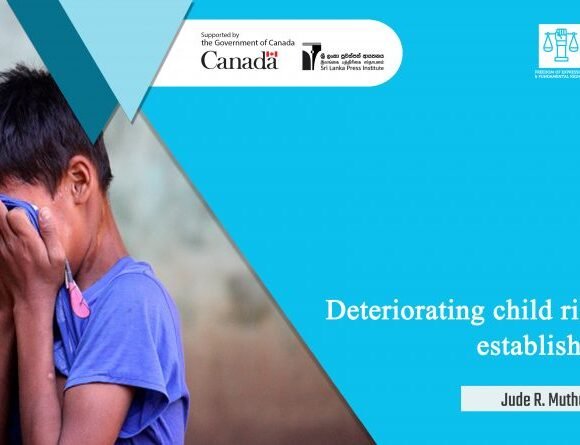Dhanushka Silva
Mr. Jagath Balasooriya will become the new president of the Human Rights Commission in Sri Lanka. He does not own a master’s degree on Human Rights or Law. The terrible case is him being a former politician who represented the party that is in power now. He has been a deputy minister and a governor. His wife is also a former governor. Furthermore, the son of Jagath Balasooriya, Tharaka Balasooriya is a state minister in the current government. It is true that Jagath Balasooriya is not engaged in active politics now a day. But he is not at all free from the political roots that are grown around him. These political roots have grown around him disable him from working as the president of the Human Rights Commission which is autocratic and apolitical.
An active politician has never been the president of the Human Rights Commission from its origin. Even though some actions of several presidents were criticized by society, this is the first time that a person with direct political influences came into this position. It can be proven by analyzing the list of former presidents. For example, Deepika Udugama, who was the last president of the country, is a master’s degree holder in Law at the University of Peradeniya. Prathibha Mahanamahewa, who held the presidency before her was a product of the University of Colombo. However, the tradition of not appointing politicians like the president has been broken with the appointment of Mr. Jagath Balasooriya.
Almost all the commissions in Sri Lanka respect the diversity of population composition in the country. Therefore, the major positions too are decided by the same criterion. That is how commissions hold the quality of autocracy in the country. The Human rights act in Sri Lanka has provided the necessary procedures for it. Statement no.3.3 is important in this scenario. According to the above-mentioned statement, when the commissioners are appointed to the commission there should be representatives from the minor communities too. But the list proposed by the president does not include any name of a person from minor ethnic communities. In the content of the former commission, Mr Ambika Sathgunanadan (Tamil) and lawyer Gasali Hussein (Muslim) were there to represent the minor ethnic communities. But the commission that has been appointed for the next five years includes Sinhalese monopoly. On one hand, this condition has violated the Act of Commissions and on the other hand, it does not highlight multicultural qualities. A commission with Sinhalese monopoly has less ability to find solutions for the problems that different nationalities face by discussing them in an open forum.
According to the Human Rights Commission Act, “the commission should be made of five members who are knowledgeable and practically experienced about scenarios related to human rights.” How does this statement affect the newly appointed commissioner? Mr Chandana Udawatta, whose name has been proposed by the president, is the former vice-chancellor of the University of Sabaragamuwa. He is also an active supporter of the ruling party in the Ratnapura district. Therefore, the criticism which was brought forward related to Jagath Balasooriya can be applied to Chandana Udawatta too.
What is the level of proficiency they reached in the recent past in the discipline of human rights? How is their personal contribution to enhance human rights in Sri Lanka? Will they be able to continue the commission with autocracy with their political bound nature in the coming half-decade? These questions still remain unanswered regarding the above-discussed matters.









